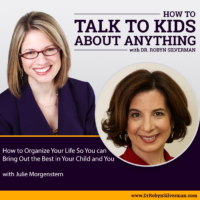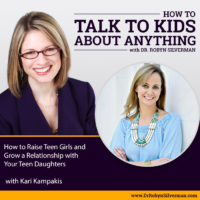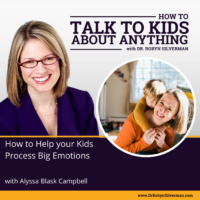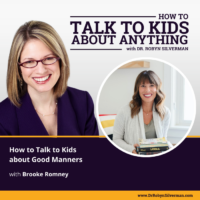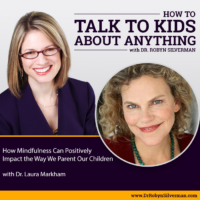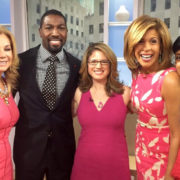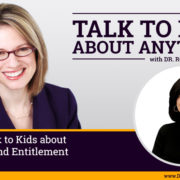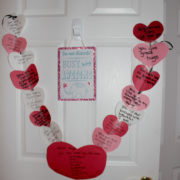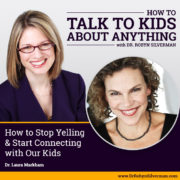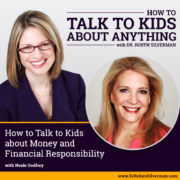Mind Your Manners! Top 10 Tips for Helping Children Show Manners during the Holiday Season
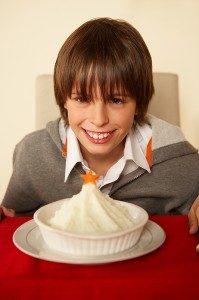 Joey, a seven year old boy with big brown eyes and a proven love for mashed potatoes did the unthinkable. Sitting around the holiday table, Joey wanted to show his Aunt Theresa that he could be part of the “clean the plate club” just like his Great Uncle Lester. With great conviction, he picked up his plate and licked it—sending his leftover turkey onto the floor, his unused gravy into his lap, and his mashed potatoes up his nose. Then he sneezed…and no, he didn’t cover his mouth or nose.
Joey, a seven year old boy with big brown eyes and a proven love for mashed potatoes did the unthinkable. Sitting around the holiday table, Joey wanted to show his Aunt Theresa that he could be part of the “clean the plate club” just like his Great Uncle Lester. With great conviction, he picked up his plate and licked it—sending his leftover turkey onto the floor, his unused gravy into his lap, and his mashed potatoes up his nose. Then he sneezed…and no, he didn’t cover his mouth or nose.
Joey’s mother, Trish, told me during one of our coaching sessions, “Perhaps it would have seemed funnier if half my guests weren’t covered in remnants from Joey’s dinner…my mother-in-law included.”
Holiday time can be unpredictable. It can encourage parents to push the limits of their credit cards and children to push the buttons of their parents. The excitement of these special days coupled with “once-a-year” guests, competition for parental attention, anticipation of gifts, power shopping and elaborate meals can inspire children to do things that they might not try at any other time of the year.
How can you help to ensure that your child doesn’t do a repeat performance of Joey’s dinner disaster?
(1) Expose them to role models with manners: It’s challenging to teach good manners if a key adult or older sibling in the house isn’t modeling them. Actions speak louder than words. Children must be shown as well as told what you would like to see with regard to manners. Older “cool” friends or siblings who have great manners can be a particularly powerful influence. If your children see others showing great manners, your children will learn to do the same.
(2) Set the expectations: Talk to your children about how you would like them to act in certain situations before they arise. Role-play these ideas. What would you like them to say when someone gives them a present (even if they don’t like it)? How should they behave at the holiday table? Give them the step by step and allow them to help you generate ideas.
(3) Start practicing at home: Going to someone else’s house for the holiday? Manners begin at home. If you want your child to use manners out in public or in someone else’s house, they must be reinforced and used in your home. Practice using a napkin, asking someone to pass the food, saying thank-you to the host, and saying goodbye to the guests.
(4) Be consistent: Children retain what you repeat. “Please” and “thank-you” will only become habits if you teach your children to say it every time it’s appropriate. This does not mean you should nag. Remind your children without making a big deal of it.
(5) Use books and posters to show examples: If you have worked with me, you know that I like to compile children’s books by category such as manners, discipline, courage, and other character education words. The use of books and posters can be great visual ways to start a conversation about manners during holiday time as well as throughout the year.
(6) Play the “what if” game: Provide scenarios and questions and allow the whole family to discuss manners in this interactive way. I like to provide about 18-20 questions for each of my clients to use so that each person in the family can answer several questions. When you do this as a family, it makes it fun as well as educational.
(7) Play the “messy manners” game: Another fun game I encourage people to play is the “messy manners” game. During this game you can brainstorm all the rude manners one might exhibit at the holiday table. You can even role play these “messy manners.” Everyone gets a good laugh but most importantly, it provides a springboard for the questions, “Why shouldn’t we do that?” and “What should we do instead?”
(8) Review the Powerful Greeting: Any child who attends a Powerful Words Member School or has worked with me during a presentation at a school knows about the “Powerful Greeting.” This greeting is really quite simple. First, teach the child how to shake an adult’s hand. Then, teach him how to look at someone in the eye. Finally, teach him to say, “hello, my name is ____, it’s nice to meet you,” or “Hello, it’s nice to see you again, thanks for having us.” Everyone is always very impressed and the praise the child receives from others always makes the child feel really good!
(9) Teach the Child How to Write Thank-You Notes: In the age of email, we all know how simple it is to send a quick note. However, we also have to admit that getting thank-you card in the mail is better. Teach your child how to write a thank-you card if he has received a nice gift for the holidays. Young children can draw a picture and sign their name to the card. You can even take a picture of that child with the gift and send that along as well. It doesn’t need to be perfect or complex; it simply shows children the importance of saying thank-you.
(10) Praise it if you like it: When you compliment children on good behavior, they’ll want to do the same thing again. Be specific with your praise. What did you like? “I like the way you helped clear off the table without anyone asking. That really put a smile on my face and shows that you have very nice manners.” Children will be looking to do a repeat performance and find other ways to make you proud.
Good luck with your holiday plans. Remember to try and relax through the hustle and bustle of it all. These tips are sure to prepare you for a great day. And if the mashed potatoes still end up flying in the face of your mother-in-law during holiday dinner, don’t forget, there’s always next year.


